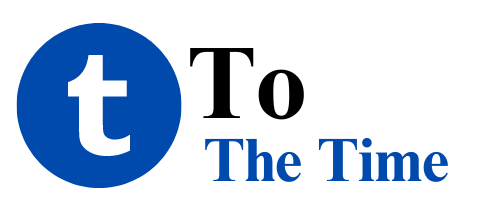In today’s fast-paced world, scientific research and collaboration are more important than ever. With the rise of technology, scientists are able to work together on projects regardless of their physical location. One platform that has been gaining popularity in the scientific community is GitLab. Originally created for software development, GitLab has now expanded its reach to include scientific research. In this article, we will explore how TotallyScience GitLab is revolutionizing scientific collaboration.
What is GitLab?
GitLab is a web-based DevOps lifecycle tool that provides a complete set of features for managing software development projects. It offers version control, issue tracking, code review, continuous integration, and deployment capabilities. GitLab was first released in 2011 and has since become a popular choice for software development teams due to its open-source nature and user-friendly interface.
How is GitLab Used in Scientific Research?
With the increasing complexity of scientific research, collaboration among researchers has become crucial. GitLab provides a platform for scientists to work together on projects, share data, and track changes in real time. It also allows for easy communication and feedback among team members, making the research process more efficient and effective.
Version Control for Data Management
One of the key features of GitLab is its version control system. This allows researchers to keep track of changes made to their data and easily revert back to previous versions if needed. This is especially useful when multiple researchers are working on the same project, as it ensures that everyone is working with the most up-to-date data.
Issue Tracking for Project Management
Another important aspect of scientific research is project management. GitLab’s issue-tracking feature allows researchers to create and assign tasks, set deadlines, and track progress. This helps to keep the project organized and on track, ensuring that all team members are aware of their responsibilities and deadlines.
Continuous Integration for Code Collaboration
In addition to data management and project management, GitLab also offers continuous integration (CI) capabilities. This allows researchers to collaborate on code in real-time, making it easier to identify and fix any issues that may arise. CI also helps to ensure that the code is always up-to-date and functioning properly.
Benefits of Using GitLab in Scientific Research
The use of GitLab in scientific research has numerous benefits, some of which include:
Increased Efficiency and Productivity
By providing a centralized platform for collaboration, GitLab streamlines the research process and eliminates the need for multiple tools. This saves time and increases productivity, allowing researchers to focus on their work rather than managing different software and communication channels.
Improved Data Management and Reproducibility
With GitLab’s version control system, researchers can easily keep track of changes made to their data and ensure that all team members are working with the most recent version. This also improves the reproducibility of research, as all data and code are stored and can be accessed at any time.
Enhanced Collaboration and Communication
GitLab’s user-friendly interface and real-time collaboration features make it easy for researchers to work together regardless of their physical location. This promotes better communication and feedback among team members, leading to more efficient and effective research outcomes. Blackberry Pearl
How to Get Started with TotallyScience GitLab?
Getting started with TotallyScience GitLab is simple and straightforward. Here are the steps to follow:
- Sign up for a GitLab account: You can sign up for a free account on GitLab’s website or choose to self-host your own instance.
- Create a project: Once you have an account, you can create a project by clicking on the “New Project” button. Give your project a name and description, and choose whether it will be public or private.
- Add collaborators: Invite other researchers to join your project by adding them as collaborators. This will allow them to access and contribute to the project.
- Start collaborating: Once your project is set up, you can start collaborating with your team members by using GitLab’s various features such as version control, issue tracking, and continuous integration.
Frequently Asked Questions about TotallyScience GitLab
What types of projects are suitable for TotallyScience GitLab?
TotallyScience GitLab is suitable for any type of scientific research project, including but not limited to biology, chemistry, physics, and computer science.
Can I use GitLab for data analysis?
Yes, GitLab can be used for data analysis as it allows for version control and collaboration on code.
Is GitLab free to use?
GitLab offers a free plan for individuals and small teams, while larger organizations can choose to self-host their own instances.
Can I integrate other tools with GitLab?
Yes, GitLab has integrations with various tools such as Jupyter Notebook, RStudio, and MATLAB.
Is GitLab secure for storing sensitive data?
GitLab offers various security features such as two-factor authentication and encryption, making it a secure platform for storing sensitive data.
Conclusion
In conclusion, TotallyScience GitLab is revolutionizing scientific collaboration by providing a centralized platform for data management, project management, and code collaboration. Its user-friendly interface and real-time collaboration features make it an ideal choice for researchers looking to streamline their work and improve efficiency. With its numerous benefits and easy setup process, GitLab is definitely worth considering for any scientific research project.


[…] If your SIM card sustains damage, you may experience issues with making calls or sending texts, or your phone may display an error message.. You can also try inserting your SIM card into a different phone to see if the issue persists.TotallyScience GitLab […]
[…] With its various features such as video conferencing, screen sharing, and instant messaging, Teltlk promotes efficient collaboration among team members. This is especially crucial for businesses with remote teams or multiple offices.TotallyScience GitLab […]